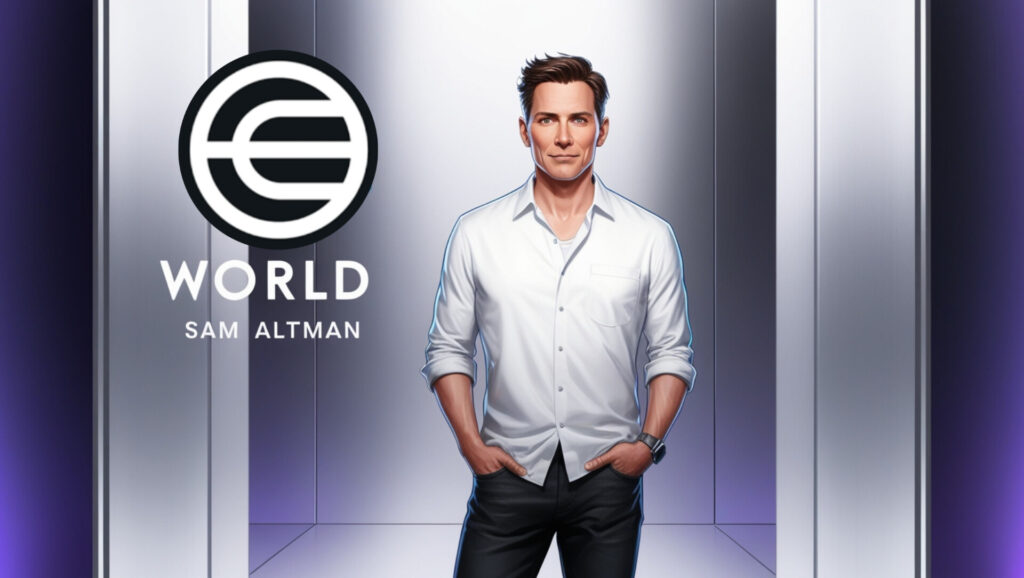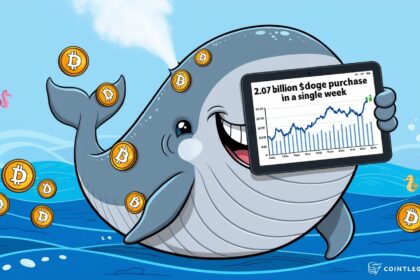
Sam Altman worldcoin cryptocurrency project, has undergone a rebranding. The project, now called “World,” focuses on identity verification through biometric iris scanning technology. This change is part of a broader effort to grow and improve the project, but it has raised concerns about how it collects data.
What Is World ?
World is a digital identity verification project founded by Sam Altman Worldcoin in the beginning, Sam Altman is the CEO of OpenAI. Originally launched in July 2023, the project aims to distinguish real humans from AI by using biometric data. The core feature of World is the World ID, a digital passport created through iris scans, which can be used to prove a person’s identity online. The rebranding to “World” reflects the project’s growing scale and mission, which focuses on human verification in the digital space.
New Orb Devices
At a recent event in San Francisco, World introduced an updated version of its iris scanning device called the Orb. The new Orb device is more powerful, using Nvidia’s Jetson chipset, and is designed to offer faster and more efficient scans. It is also enhanced with 5G connectivity and improved security features. The Orb will soon be available in new self serve kiosks and retail locations, making it easier for people to access the device.
Sam Altman Worldcoin Expanding the Access
Sam Altman Worldcoin is now upgraded to increase accessibility, also announced partnerships with companies like Rappi, a delivery service in Latin America, to bring Orb devices to more users. These efforts aim to make iris scanning devices more available in different parts of the world, allowing more people to sign up for a World ID.
World Chain and Blockchain Technology
As part of the Sam Altman Worldcoin rebranding, World also launched its own blockchain, called the World Chain. Built as a Layer 2 network on top of the Ethereum blockchain, World Chain is designed to support human identity verification and crypto adoption. According to the company, it already has the largest number of verified human users on any blockchain, with over 15 million people either using or migrating to the platform.
Privacy Concerns
World’s use of biometric data has been a subject of debate since its beginning. Privacy advocates have raised concerns about how the company collects, stores, and uses personal information. Several countries, including Spain, Portugal, Argentina, and Britain, have examined the project closely or placed temporary bans to review its practices.
World ID 3.0
With the Sam Altman Worldcoin rebranding, World introduced World ID 3.0, the latest version of its digital identity system. Users can now store information from their passports on their devices, and the app’s enhanced privacy features ensure that personal data remains secure. This new version allows for more secure identity verification without revealing personal details like age or nationality.
Deep Face Technology
One of the new technologies World unveiled is called Deep Face. This tool is designed to fight against deepfakes by verifying whether videos and images are authentic or manipulated. It will be integrated into various applications, ensuring that users can identify whether the person they are communicating with online is real or not.
World App 3.0
Alongside other upgrade, this app has been redesigned to accommodate the growing user base. The new app includes features like Vault and World Pay, and offers support for third party developers to create mini apps within the World network. These updates are aimed at scaling World’s platform and increasing the usability of World IDs across different digital services.
Project Growth
Since it started, Sam Altman Worldcoin project has signed up over 6.9 million people, with Orbs set up in 844 locations around the world. As of October 2023, World has grown into a global project with millions of users, but the challenges of scaling such a controversial initiative remain.
Conclusion
Sam Altman Worldcoin project is undergoing a transformation with its recent rebranding to “World.” This includes the introduction of updated Orb devices, new blockchain technology, and enhanced identity verification tools aimed at scaling human identification online. With 15 million users already onboard, the project’s future looks promising. However, concerns about privacy and data security remain. As the project evolves, it could play an important role in redefining digital identity verification.








